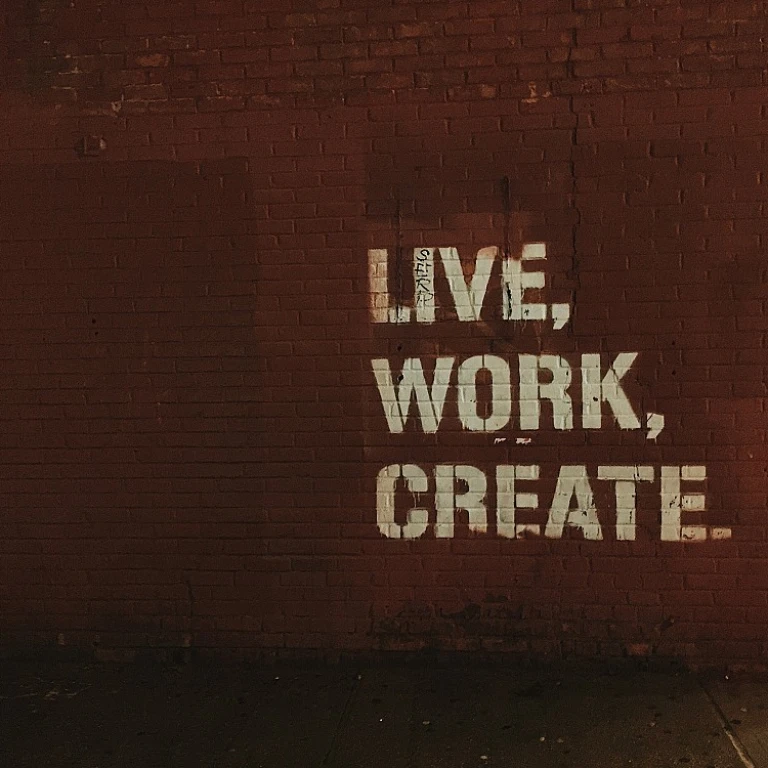Understanding Background Checks
Demystifying the Basics of Background Checks
A background check serves as a crucial tool for employers seeking to verify a prospective employee's past, safeguarding the workplace and ensuring trustworthiness. This process involves a comprehensive examination of an individual's history, focusing on key aspects such as criminal history, employment verification, and sometimes, credit checks. Understanding what constitutes a background check is essential. Employers typically request information regarding any criminal record, addressing concerns over past legal issues, whether arrests or convictions. These checks are often conducted through various means, including state law enforcement databases, public court records, and specialized background check companies. While most background checks will include details about arrest records and criminal records, it's important to differentiate between arrest records and convictions. An arrest does not always translate into a conviction, as legal proceedings may result in different outcomes. Moreover, certain jurisdictions have laws that govern what can be included in a background check, adding another layer of complexity. Aiding this process, some background checks also assess the nature of the offense. If a class misdemeanor is found, it may still impact the hiring decision depending on the employer's policies and the role's specific requirements. Additionally, nuances such as expunged records do not typically appear on fingerprinting checks, adding an essential distinction for both job seekers and employers. With the development of these checks, legal considerations have become more pronounced, thereby influencing both job seekers and employers alike. Understanding the guidelines surrounding background checks, including laws like "ban the box," which restrict early queries into criminal history, is vital to navigating this landscape. Learn more about the complex nature of these checks by exploring the latest trends in expunged records and fingerprinting. This resource offers insights into what specific details might surface, helping you better prepare and understand the scope of background evaluations.Arrest Records vs. Convictions
Distinguishing Between Arrests and Convictions
When navigating the complexities of background checks, understanding the distinction between arrest records and convictions is paramount. Arrest records document an individual’s apprehension by law enforcement, typically indicating that they were a suspect in a criminal case. However, an arrest does not signify that the person was guilty or even charged with a crime. On the other hand, a conviction occurs only when a court finds an individual guilty, either by a plea or a trial decision, and it is then reflected on their criminal record. Arrest records differ significantly from conviction records in terms of their implications on background checks. Many employers conduct background checks to evaluate potential employees’ history, and often, arrest records can appear alongside conviction records in these reports. This inclusion can significantly affect an individual's employment opportunities, as previous arrests might raise red flags to potential employers, despite the absence of a conviction. The state in which an individual resides or works can also impact how arrest and conviction records are reported. Some jurisdictions limit the disclosure of arrest records, particularly those that did not lead to a conviction, thereby offering some protection. The expungement or sealing of arrest records can further affect their visibility on background checks, although the laws governing these processes vary. For job seekers and employers alike, the implications of having arrest records appear on background checks cannot be overstated. Understanding the subtleties between different types of records can empower individuals to navigate their criminal history more effectively when engaging in employment opportunities. Employers also have an obligation to interpret these records accurately, avoiding potential biases that might arise. For deeper insights into these dynamics, consider exploring what's shaping criminal background check trends.Legal Considerations and Regulations
Legal Frameworks for Background Checks and Arrest Records
Understanding the legal intricacies of criminal background checks is crucial for both job seekers and employers. Not all arrest records will automatically appear during a background check, as the disclosure largely depends on state-specific laws and employment sector regulations. These statutes establish what information is permissible to request and report, ensuring a fair balance between public safety and individual privacy.
In many states, there's a clear distinction between arrest records and convictions. Arrests without conviction may not always show up on a background check, particularly if the case is dismissed or you're granted an expungement. Companies conducting background checks must navigate a complex legal landscape that often requires contact with court systems to verify details of a criminal record. Employers must comply with laws that prevent misuse of these records, such as the "ban the box" movement, which aims to reduce discrimination based on past arrests.
The Fair Credit Reporting Act (FCRA) plays a significant role in guiding how arrest records can be used. It mandates that background checks for employment purposes are accurate and up-to-date, allowing individuals to dispute errors in their criminal history record. Accordingly, legal considerations surrounding a criminal background check involve understanding timelines; for instance, how long certain offenses can legally remain on your criminal history report.
Employers are cautioned against categorically rejecting candidates based solely on an arrest record without a conviction. However, discrepancies can arise due to differences in state laws regarding criminal records. Engaging with employment verification agents can ensure accurate representation of an applicant's background, aligning with https://www.background-check-trends.com/blog/understanding-the-role-of-employment-verification-agents to better understand how verification would work in practice.
Implications for Job Seekers
The Impact of Arrest Records on Job Opportunities
For job seekers, the presence of an arrest record on a background check can have significant implications. Even if an arrest does not lead to a conviction, it may still appear in the criminal background check many employers conduct during the hiring process. Understanding how arrest records are treated and the regulations governing their use is crucial for anyone navigating the job market with a criminal history.
Employers commonly regard a criminal record as a reflection of an applicant's character and trustworthiness. While a conviction indicates a proven offense in a court of law, an arrest only suggests suspicion, not guilt. However, various states have different laws dictating whether arrest records can be used in employment decisions. For example, some states have enacted "ban the box" laws, which forbid employers from asking about criminal history on initial job applications, giving candidates a better chance to showcase their qualifications before any background check reveals their past.
Despite this, job applicants should be aware that arrest records can still impact their employability, especially in industries where trust and safety are paramount, such as childcare, finance, and law enforcement. A potential employer's ability to access and decide based on these records will vary based on state law, the nature of the position, and the company's internal policies.
It is a best practice for job seekers with a criminal background to be upfront about their history if given the chance during the employment process. Demonstrating transparency and a willingness to discuss the context around an arrest or conviction can help mitigate potential concerns from employers conducting criminal background checks.
Ultimately, understanding one's criminal history records and how they may appear on background checks is key to preparing for discussions with potential employers. Seeking legal advice to clarify rights concerning arrest and criminal records, as well as addressing inaccuracies, will also aid in navigating job prospects effectively.
Employer Responsibilities and Best Practices
Responsibilities for Employers in Conducting Background Checks
Employers play a critical role in determining the relevance and application of background check results during the hiring process. It's imperative for employers to make informed decisions, while adhering to legal restrictions and maintaining fairness toward all candidates.- Understanding Legal Responsibilities: Employers must familiarize themselves with both federal and state regulations regarding background checks. This includes understanding what constitutes an acceptable look into an applicant's criminal history and ensuring compliance with laws governing the disclosure of arrest records versus convictions. Familiarity with the Fair Credit Reporting Act (FCRA) is essential, as it sets the basic standards for obtaining and utilizing background checks.
- Implementing Fair Hiring Practices: The "ban the box" movement, which encourages employers to remove criminal history questions from initial job applications, has gained traction. This approach gives candidates with arrest records or convictions a fair chance to present their qualifications before addressing their criminal background. Employers should stay current on such initiatives and incorporate them into their hiring processes when applicable.
- Engaging with Professional Screening Services: Enlisting the help of professional background check companies ensures that employers receive accurate and up-to-date information. These services help interpret background check results in the context of the law, taking into account nuances such as the difference between arrest and conviction records.
- Keeping Consent Top of Mind: Before requesting a background check, employers must obtain written consent from the applicant. Transparency in this process not only adheres to legal requirements but also fosters trust between the employer and potential employee. Clearly explaining the scope of the background check, whether it includes checking arrest records or just convictions, is beneficial.
- Managing Adverse Action Decisions: When a background check reveals a negative result, employers must follow a specific protocol before making any adverse employment decisions. This often involves providing the candidate with a copy of the report and the chance to dispute inaccuracies before finalizing employment decisions, as required under the FCRA.
- Cultivating a Knowledgeable HR Team: Regular training on the latest trends and updates in criminal background checks is vital for human resources professionals. Being well-versed in criminal background checks as well as court and arrest records ensures the team is making informed and unbiased hiring decisions.
Future Trends in Background Checks
Innovations and Challenges in Background Check Processes
As technology evolves, so does the process of conducting background checks. Employers are increasingly adopting more sophisticated tools to screen candidates more thoroughly and accurately. These advancements include digital platforms that streamline the gathering and verification of a candidate's arrest records, criminal history, and employment history. However, staying informed is key as both the legal landscape and technology continue to shift dynamically.- Advanced Data Analytics: The use of data analytics is becoming more prevalent in background checks. By harnessing the power of data algorithms, employers can efficiently review criminal records, arrest records, and other pertinent employment data.
- Increased Focus on Data Privacy: With a growing emphasis on data privacy, particularly in light of evolving laws such as GDPR and state-specific regulations, ensuring that personal information is securely handled has become paramount. Employers must navigate laws to avoid potential legal pitfalls related to unauthorized data sharing.
- Ban the Box Movement: The ongoing "Ban the Box" initiative represents a significant trend in background check practices. This movement aims to remove the conviction history checkbox from job applications, emphasizing the need for fair employment opportunities without prejudice based on history records.
- Real-time Criminal Checks: The ability to conduct real-time criminal background checks provides employers with up-to-the-second accuracy, aiding in immediate decision-making when a criminal case or check is relevant.
- Integration of Artificial Intelligence: AI technology is increasingly used to streamline background checks, reducing human error and potentially minimizing bias in hiring decisions.







